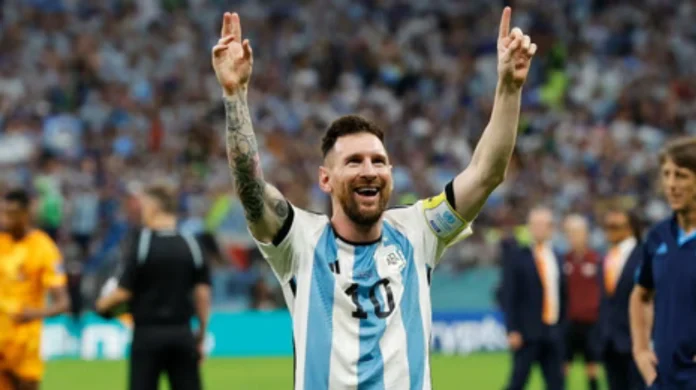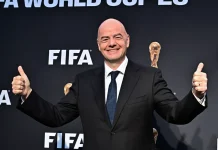The 2025 FIFA Club World Cup, hosted in the United States, was anticipated as a landmark event in global football. With an expanded 32-team format, a massive prize pool, and the participation of superstars like Lionel Messi and Kylian Mbappé, expectations were sky-high. However, the tournament has been mired in controversy from the outset, with Messi’s visible frustration symbolizing the broader issues surrounding the event. This article delves into the key controversies, player stances, and statements that have shaped the early days of the FIFA Club World Cup 2025, highlighting the tension between commercial interests and sporting integrity.
The Tournament Kickoff: Messi’s Frustration Takes Center Stage
A Goalless Draw and Missed Opportunities
The Club World Cup opened with a tightly contested match between Inter Miami, led by Lionel Messi, and Egyptian powerhouse Al Ahly. Despite the hype, the match ended in a goalless draw. Inter Miami’s goalkeeper, Oscar Ustari, was the standout performer, making eight crucial saves, including a penalty stop. Messi came agonizingly close to scoring a late winner with a long-range shot that rattled the crossbar, but Al Ahly’s goalkeeper Mohamed El Shenawy denied him.
Messi’s visible frustration at the final whistle reflected not only the match’s result but also his broader physical and mental state heading into the tournament.
Physical Concerns and Substitution Controversy
Just days before the tournament opener, Messi requested to be substituted during Argentina’s World Cup qualifier against Colombia. Argentina’s coach Lionel Scaloni explained that Messi initially wasn’t going to come off but ended up doing so near the end because he told the coach it was better for him to come off, so they decided to make the change.
This incident raised concerns about Messi’s fitness and readiness for the Club World Cup, fueling speculation about whether he could perform at his best during such a demanding competition.
Inter Miami’s Controversial Inclusion: Commercial Motives Over Sporting Merit
Questionable Qualification Criteria
One of the most contentious issues surrounding the 2025 FIFA Club World Cup is the inclusion of Inter Miami as the host nation’s representative, despite the club not winning the MLS Cup or the CONCACAF Champions Cup. FIFA justified Miami’s participation based on their regular-season performance, but critics argue this was a clear commercial decision designed to ensure Lionel Messi’s presence in the tournament.
Many observers have noted that FIFA’s inclusion of Inter Miami underscores the commercial power Messi has brought to MLS and U.S. soccer, and that Messi is the real reason Miami made the guest list.
Economic Impact of Messi’s Arrival in MLS
Messi’s arrival in Major League Soccer has had a transformative effect on the league’s commercial landscape. Since his signing, MLS sponsorship revenue has surged, with 80% of current league sponsors signing on after Messi joined. The league and its clubs now generate close to $800 million annually in sponsorship deals—a figure unimaginable before Messi’s arrival.
This commercial boom explains FIFA’s motivation to include Inter Miami, as Messi’s participation guarantees increased global attention, higher ticket sales, and lucrative broadcasting deals.
Player Welfare and Scheduling Concerns
The Burden of an Expanded Tournament
The 32-team format of the Club World Cup has drawn sharp criticism from players’ unions and football leagues worldwide. FIFPRO, the global players’ union, alongside the World Leagues Forum, has openly condemned FIFA’s decision to add more matches to an already congested football calendar.
The workload on players is staggering. For example, Real Madrid’s Federico Valverde is projected to play up to 78 games and nearly 7,000 minutes this season if he participates in all competitions, a schedule many experts consider unsustainable.
FIFPRO and the World Leagues Forum have openly criticized FIFA’s decision to add more matches to already packed schedules, raising serious concerns about player health, fatigue, and injury risk. These issues appear to have influenced Messi’s cautious approach to the tournament.
Missing Stars and Questionable Selections
Notable Absences
Despite the presence of global stars like Messi and Mbappé, several top players are notably absent from the tournament. Mohamed Salah, a key figure for Liverpool, is missing because Liverpool did not qualify. Similarly, Barcelona’s promising young talent Lamine Yamal is not participating.
Criticism of Qualification Criteria
The selection criteria for the tournament have been widely criticized. Clubs like Barcelona, Liverpool, and Napoli—winners of major European leagues—were excluded, leading to accusations that the tournament prioritizes commercial appeal over sporting merit.
This has fueled skepticism about the legitimacy of the competition and whether it truly represents the world’s best club football.
The Special Transfer Window and Ronaldo Speculation
FIFA’s Unprecedented Move
In an unprecedented step, FIFA created a special transfer window for the tournament, allowing clubs to sign new players in June and July. This move was widely interpreted as an attempt to attract marquee players to participating teams and boost the tournament’s profile.
Ronaldo’s Decision
Cristiano Ronaldo, whose participation was highly anticipated, received multiple offers from clubs competing in the tournament. However, he ultimately declined all offers, choosing not to join any team on a short-term basis.
His decision was seen as a statement against the commercialized nature of the tournament and the idea of short-term contracts undermining the integrity of club competitions.
On-Field Controversies: Messi’s Alleged Influence
The Grass Height Remark
Borussia Dortmund’s sporting director Sebastian Kehl made a tongue-in-cheek comment suggesting that Messi might have influence over the playing conditions at the tournament, specifically the height of the grass. Kehl said, “What’s special here is that I think Lionel Messi chooses the height of the grass.”
Although Kehl later downplayed the comment as lighthearted, it added fuel to rumors that the tournament organizers might be going to extraordinary lengths to accommodate Messi, further stoking controversy about fairness and favoritism.
A Tournament Defined by Controversy and Commercial Interests
The 2025 FIFA Club World Cup has started amid a swirl of controversy, with Lionel Messi’s frustration emblematic of the broader issues plaguing the event. From Inter Miami’s questionable inclusion and the expanded schedule’s strain on player welfare to missing stars and the shadow of commercial interests, the tournament is struggling to balance spectacle with sporting integrity.
FIFA’s grand vision for a global football spectacle is undeniable, but the criticisms highlight the complex challenges of modern football governance. As the tournament progresses, the question remains: will the on-field action rise above the controversies, or will the 2025 Club World Cup be remembered more for its commercial gambits than its footballing excellence?













